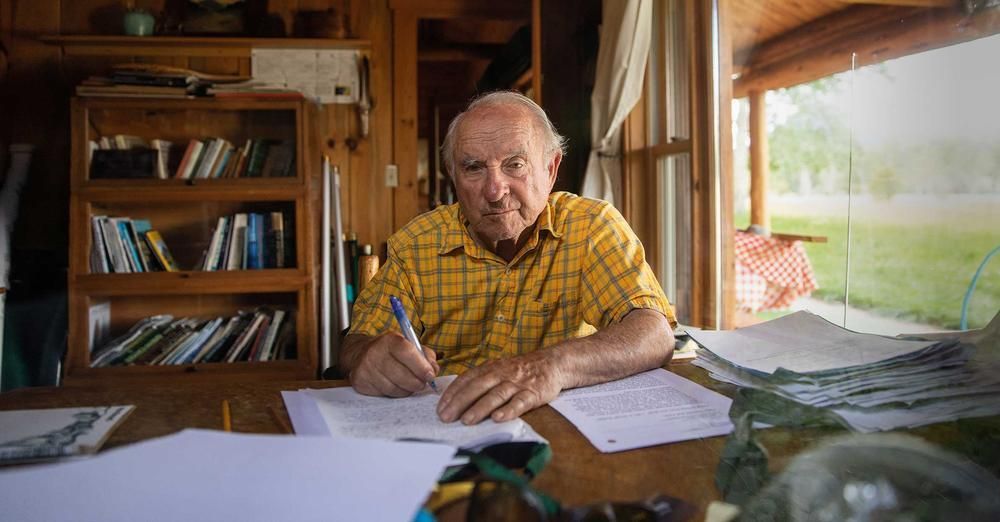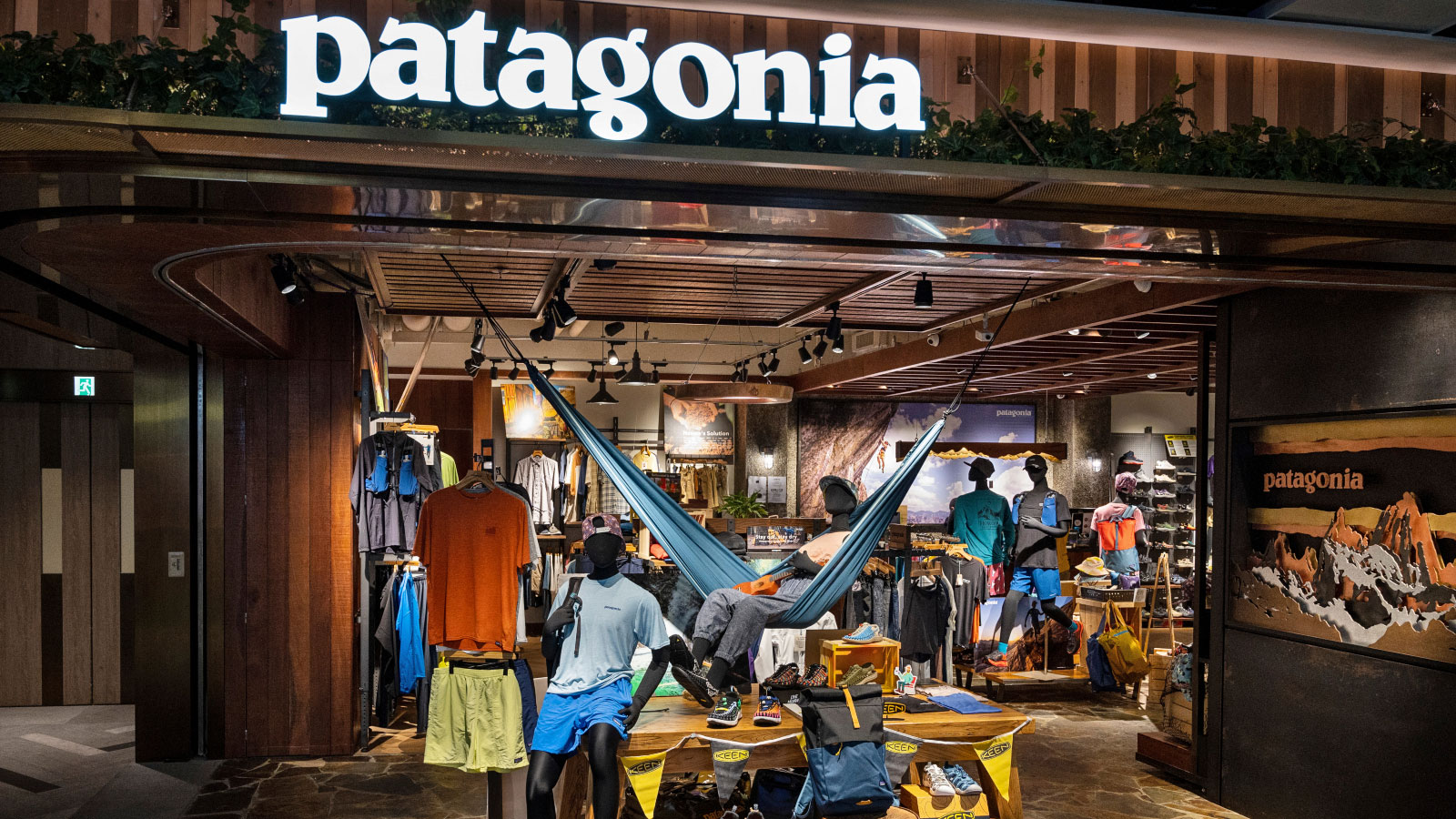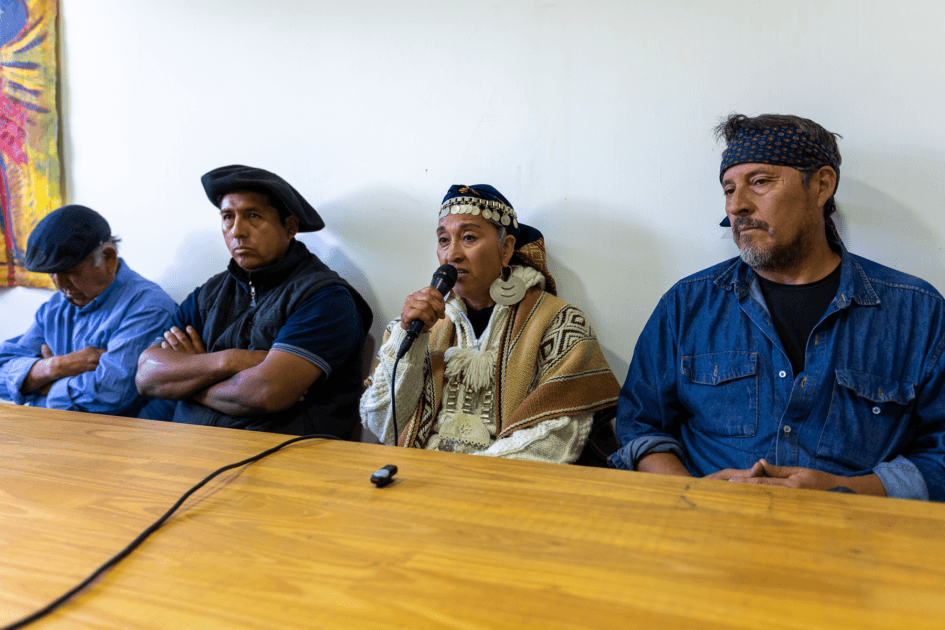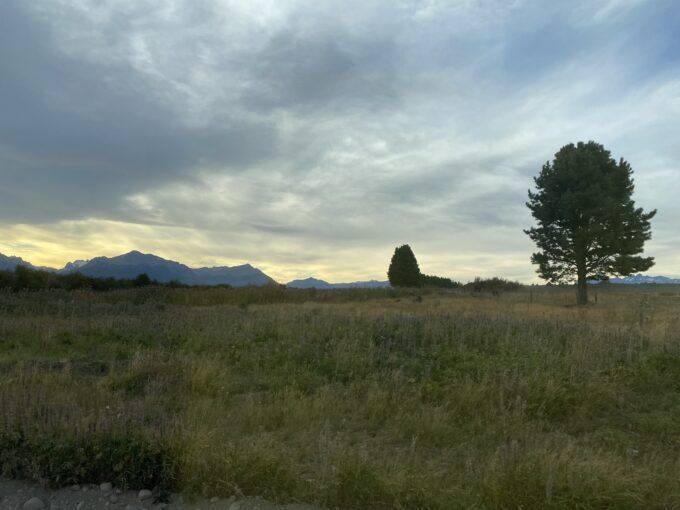Antony Currie Reuters
PUBLISHEDSEP 16, 2022
MELBOURNE (Reuters Breakingviews) - If there were more Yvon Chouinards, humans might be doing a better job of battling global warming. Such sentiments are doing the rounds on social media since the founder of Patagonia revealed https://nam02.safelinks.protection.outlook.com/
The idea of separating environmental, social and governance concerns from each other has been gaining traction https://nam02.safelinks.protection.outlook.com/?
In practice, all three should form an integral part of a fund manager’s overall analysis. Not only do they interact with one another, excluding or downplaying one type of performance could result in plenty of risks and opportunities being overlooked.
Forcing companies to pick between the three concepts would also create unnecessary dilemmas. Chouinard, for example, wants to steer more money towards protecting the planet. By handing virtually all shares over to a charitable trust, though, he’s limiting his contribution to the firm’s annual earnings of some $100 million a year, per the New York Times https://nam02.safelinks.protection.outlook.com/?
That, though, would risk selling the company to those who might not defend either the company’s environmentally friendly culture or its employees. His unusual solution is one few are likely to replicate. But behind it is a more responsible approach to managing a business than forcing ESG issues into unneeded siloes.
Follow @AntonyMCurrie https://twitter.com/antonymcurrie on Twitter
CONTEXT NEWS
Yvon Chouinard has ceded control of outdoor clothing brand Patagonia, the founder disclosed in a letter on Sept. 14. As a result, all company profit will go to a non-profit entity which will spend it to fight climate change.
As part of the deal, Chouinard and his family have transferred all stock with voting rights to the Patagonia Purpose Trust. Overseen by family members and their advisers, according to the New York Times, the trust will be responsible for approving key decisions like choosing the board of directors.
All non-voting stock, which represents the vast majority of shares, has been given to the Holdfast Collective, which Chouinard calls "a nonprofit dedicated to fighting the environmental crisis and defending nature".
Patagonia has annual revenue in excess of $1 billion and profit of some $100 million, the New York Times reported on Sept. 14.
(Editing by Robyn Mak and Thomas Shum)
"Hopefully this will influence a new form of capitalism that doesn't end up with a few rich people and a bunch of poor people," said Yvon Chouinard. "We are going to give away the maximum amount of money to people who are actively working on saving this planet."

"We needed to find a way to put more money into fighting the crisis while keeping the company's values intact," Patagonia founder Yvon Chouinard wrote in a letter explaining his family's ownership decision. (Photo: Patagonia/Facebook)
JESSICA CORBETT
Patagonia founder and "reluctant billionaire" Yvon Chouinard just raised the bar for corporate action on the fossil fuel-driven planetary emergency.
"Instead of 'going public,' you could say we're 'going purpose.'"
The 83-year-old, his wife Malinda, and their adult children, Fletcher and Claire, gave away the company, valued at about $3 billion. The rock climber-turned-businessman explained the decision in an interview published Wednesday by The New York Times, along with a letter on the outdoor clothing retailer's website.
"While we're doing our best to address the environmental crisis, it's not enough. We needed to find a way to put more money into fighting the crisis while keeping the company's values intact," Chouinard wrote. "One option was to sell Patagonia and donate all the money. But we couldn't be sure a new owner would maintain our values or keep our team of people around the world employed."
"Another path was to take the company public. What a disaster that would have been. Even public companies with good intentions are under too much pressure to create short-term gain at the expense of long-term vitality and responsibility," he continued. "Truth be told, there were no good options available. So, we created our own."
As the Times detailed:
In August, the family irrevocably transferred all the company's voting stock, equivalent to 2% of the overall shares, into a newly established entity known as the Patagonia Purpose Trust.
The trust, which will be overseen by members of the family and their closest advisers, is intended to ensure that Patagonia makes good on its commitment to run a socially responsible business and give away its profits. Because the Chouinards donated their shares to a trust, the family will pay about $17.5 million in taxes on the gift.
The Chouinards then donated the other 98% of Patagonia, its common shares, to a newly established nonprofit organization called the Holdfast Collective, which will now be the recipient of all the company's profits and use the funds to combat climate change. Because the Holdfast Collective is a 501(c)(4), which allows it to make unlimited political contributions, the family received no tax benefit for its donation.
The newspaper noted that "Patagonia has already donated $50 million to the Holdfast Collective, and expects to contribute another $100 million this year, making the new organization a major player in climate philanthropy."
Chouinard told the Times that "I didn't know what to do with the company because I didn't ever want a company," and called the plan an "ideal solution" for his family.
"I don't respect the stock market at all," he explained. "Once you're public, you've lost control over the company, and you have to maximize profits for the shareholder, and then you become one of these irresponsible companies."
As he put it in the letter: "Instead of 'going public,' you could say we're 'going purpose.' Instead of extracting value from nature and transforming it into wealth for investors, we'll use the wealth Patagonia creates to protect the source of all wealth."
It was important to Chouinard's children "that they were not seen as the financial beneficiaries," he told the Times. "They really embody this notion that every billionaire is a policy failure."
"I was in Forbes magazine listed as a billionaire, which really, really pissed me off," he recalled. "I don't have $1 billion in the bank. I don't drive Lexuses."
The family's move was welcomed by climate action and conservation advocates.
"Wow," tweeted Fossil Free Media director Jamie Henn. "Patagonia has long been an incredible ally in the fight for climate justice—they've offered their stores, funding, and advertising for mobilizations and more—but this takes it to a whole new level. Kudos to the entire team."
"The world really can be different friends."
Marine biologist and policy expert Ayana Elizabeth Johnson said she "could not be more proud to serve on the board of directors" of Patagonia, and celebrated that "as of now, Earth is our only shareholder—ALL profits, in perpetuity, will go to our mission to 'save our home planet.'"
Chouinard suggested the innovative approach could inspire action from others in the business world.
"Hopefully this will influence a new form of capitalism that doesn't end up with a few rich people and a bunch of poor people," he said. "We are going to give away the maximum amount of money to people who are actively working on saving this planet."
Supporters agreed. Congresswoman Marie Newman (D-Ill.) simply tweeted: "More please."
As poet Amanda Gorman pointed out Wednesday, "The world really can be different friends."
Our work is licensed under Creative Commons (CC BY-NC-ND 3.0). Feel free to republish and share widely.
By The Associated Press

Yvon Chouinard, the founder and chairman of Ventura-based Patagonia Inc., is photographed Sept 28, 2005, in the original Chouinard Equipment blacksmith shop located in Ventura, Calif., where he once forged pitons for mountaineers. In a letter posted on the privately-held company's website on Wednesday, Sept. 14, 2022, Chouinard said the 50-year-old company would transfer 100% of the its voting stock to the Patagonia Purpose Trust and and 100% of its nonvoting stock had been given to the Holdfast Collective. (Al Seib/Los Angeles Times via AP, File)
The founder of outdoor gear company Patagonia, long known for environmental activism, says the company is transferring all of its voting shares into a trust “dedicated to fighting the environmental crisis and defending nature.”
In a letter posted on the privately-held company’s website on Wednesday night, founder Yvon Chouinard said the 50-year-old company would transfer 100% of the its voting stock to the Patagonia Purpose Trust and and 100% of its nonvoting stock had been given to the Holdfast Collective.
Each year after reinvesting profits back into the company, Chouinard said remaining funds will be distributed as a dividend to the trusts in their ongoing efforts to fight the climate crisis.
Chouinard said the other options for the Ventura, California company to dedicate itself to protecting the planet — selling the company and donating the proceeds; or taking the company public — were not viable for Patagonia’s ultimate goals.
“Instead of extracting value from nature and transforming it into wealth for investors, we’ll use the wealth Patagonia creates to protect the source of all wealth,” Chouinard wrote.
Patagonia makes outdoor clothing, gear and accessories for everything from skiing to climbing and camping.
Chouinard said he “never wanted to be a businessman,” and started Patagonia as a craftsman, making climbing gear for himself and his friends.
"I am dead serious about saving this planet," he said.

"Instead of extracting value from nature and transforming it into wealth, we are using the wealth Patagonia creates to protect the source," founder Yvon Choulnard said.
Sept. 15 (UPI) -- The founder of popular outdoor retailer Patagonia says he's turned over total control of the company, which is worth roughly $3 billion, to two environmental non-profits for their fight against climate change.
Founder Yvon Chouinard announced the move in a letter posted to the Patagonia website late on Wednesday. Choulnard founded the outdoor gear company 50 years ago and has always been environmentally conscious.
"Earth is now our only shareholder," Chouinard said in a statement.
"It's been a half-century since we began our experiment in responsible business. If we have any hope of a thriving planet 50 years from now, it demands all of us doing all we can with the resources we have."
The Chouinard family has transferred the company to non-profits Patagonia Purpose Trust and the Holdfast Collective. The company said every dollar that's not reinvested will be distributed as dividends to protect the planet.
"As the business leader I never wanted to be, I am doing my part," Chouinard added. "Instead of extracting value from nature and transforming it into wealth, we are using the wealth Patagonia creates to protect the source.
"I am dead serious about saving this planet."

Yvon Chouinard, the 83-year-old founder of Patagonia, says he decided to hand over the outdoor retailer to help in the global climate crisis.
The Patagonia Purpose Trust now owns all of Patagonia's voting stock and 2% of total shares. It was founded to create a more permanent legal structure to enshrine the company's purpose and values.
The Holdfast Collective, on the other hand, now owns all of Patagonia's non-voting stock, which amounts to 98% of all shares. It said that all revenue will go toward protecting nature and biodiversity, supporting thriving communities and fighting the climate crisis.
"Two years ago, the Chouinard family challenged a few of us to develop a new structure with two central goals," Patagonia CEO Ryan Gellert said in a statement. "They wanted us to both protect the purpose of the business and immediately and perpetually release more funding to fight the environmental crisis
"We believe this new structure delivers on both and we hope it will inspire a new way of doing business that puts people and planet first."
BYCHARLES CONN
September 14, 2022

Yvon Chouinard, Patagonia founder.
AL SEIB / GETTY IMAGES
For 50 years there has been an impassioned debate about the appropriate aims and responsibilities of companies. Some side with Milton Friedman’s influential viewpoint, asserting that the only responsibility of business is to generate profits for shareholders. Others believe companies have broader responsibilities to society and the environment. Lately, even state legislatures have weighed in, proposing to ban financial managers who take ESG criteria into account. But while the battle of words continues, investors, customers, employees, and the public have moved forward. The question now is not whether but how far the pendulum has shifted towards responsibility and purpose. Surveys show that most investors believe ESG goals should trump short-term profit, and more than ever, employees and consumers are choosing companies based on what they stand for.
Great companies are loved and respected for their values and commitments to their communities in addition to what they make, not for the creation of shareholder wealth. This year Patagonia was named in the top group of most reputable companies based on criteria such as product quality, trust, citizenship, and ethics. So was Chick-fil-A. You couldn’t find two companies with more divergent values, but both have a clear purpose that extends beyond generating profits. They stand for something that people understand. Our most loved companies are already purpose-led organizations.
As a tech entrepreneur, public company CEO, and investor, I have benefited from shareholder capitalism. It’s a system that has brought us reductions in absolute poverty, longer lives through medical innovation, and many other improvements, as well as great shareholder returns. But let’s be honest: it made its gains at an enormous cost, including increasing inequality and widescale uncompensated environmental damage. We have subsidized buoyant shareholder returns by fraying the fabric of our societies and using up the planet we live on. We all know this is happening—the world is literally on fire.
Even Big Business knows the narrow extractive model of shareholder capitalism does not serve us. Leading institutions like The Business Roundtable and the World Economic Forum have worked to re-brand shareholder capitalism as stakeholder capitalism, adding responsibilities to workers, the environment, and society. Their investors demand this shift. But while this new moniker sounds good, to date actions haven’t caught up to words. The flowery language of annual reports is simply incompatible with standard forms of incorporation that require companies to only maximize shareholder returns.
Recently, a more concrete movement around company responsibility has gained momentum, the Benefit Corporation, which is a form of incorporation that puts people, environmental, and governance aims alongside profit inside company legal charters and requires specific goals and improvement over time. Similar efforts by accounting bodies and think tanks seek to develop general accounting standards for measuring companies’ social and environmental impacts that could be required for future company reporting. These two innovations are much more substantial progress toward making companies responsible players in building sustainable, prosperous societies.
At Patagonia, we signed up as a Benefit Company early on–and it has helped us clarify our responsibilities. For us, this means constantly measuring and managing our environmental footprint, seeking to reduce our use of water, carbon, and dangerous chemicals in our clothing. We invest in regenerative organic agriculture and in the circular economy by using recycled fabrics and repairing and re-selling used clothing. We price our products to reflect their real costs. We unapologetically support climate and environmental activism. And we transparently report our progress to our communities. We have used purpose capitalism to create a successful company that is committed to minimizing environmental impact and being a positive force in society.
A few years ago, we changed our mission to something both simple and hard: We’re in business to save our home planet. This clear definition of purpose is beyond any stretch goal. It has forced us to go much deeper into what it will take to have zero negative environmental impact while still making great products for our outdoor athlete customers.
Now in our 50th year, we’re going further still. Our founder Yvon Chouinard and his family have given all their Patagonia equity to a charitable entity to fund environmental conservation. We are directing all the value created by the company to specific conservation projects and advocacy. Instead of exploiting natural resources to make shareholder returns, we are turning shareholder capitalism on its head by making the Earth our only shareholder.
As a closely held company, this huge change was easier for us than others. But the point is for companies to make transparent purpose commitments that make sense to their business, and to be held to account by their communities.
Companies have responsibilities to their workers, customers, the environment, and yes, their investors. Shareholder capitalism advocates think goals other than profit will confuse investors. Nonsense. Investors already look to many company attributes when allocating capital. Over time, the market will continue to work and responsible purpose-led companies will attract more investment, better employees, and deeper customer loyalty. This is not “woke” capitalism. It’s the future of business if we want to build a better world for our children and all other creatures.
Charles Conn is the chair of Patagonia.
The opinions expressed in Fortune.com commentary pieces are solely the views of their authors and do not reflect the opinions and beliefs of Fortune.









